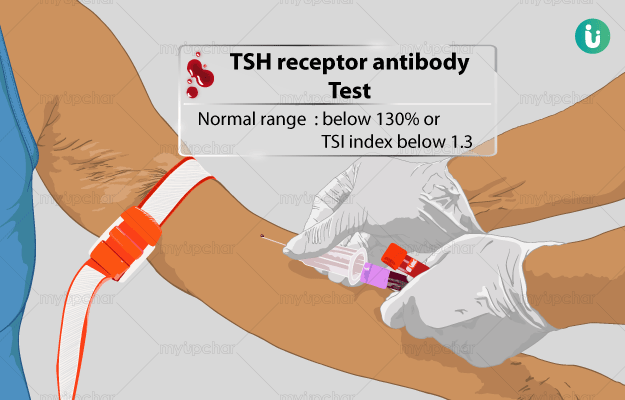What is TSH Receptor Antibody test?
The TSH receptor antibody test measures the amount of antibodies formed against the thyrotropin or the thyroid-stimulating hormone receptors in your body. Thyrotropin is produced by the pituitary gland in the brain. It binds to specific receptors in the thyroid gland - a butterfly-shaped gland located in the throat - and stimulates the release of thyroid hormones T3 and T4. Thyroid hormones regulate metabolism, mood and muscle strength.
However, if you have Grave’s disease, your body will produce antibodies against the TSH receptors, making it unable to properly stimulate the thyroid gland. These antibodies stimulate the thyroid gland to grow in size and increase the production of thyroid hormone leading to hyperthyroidism.
TSH receptor antibodies are seen in most of the cases of Grave’s disease. Some people don't show TSH antibodies even when they have all the symptoms of Grave’s disease. This is because their antibody count is too low to be detected by this test.
This test is also known as thyrotropin receptor antibody test, thyroid-stimulating immunoglobulin (TSI) test, long-acting thyroid stimulator test and thyroid-binding inhibitory immunoglobulin test.
(Read more: TSH test)






























